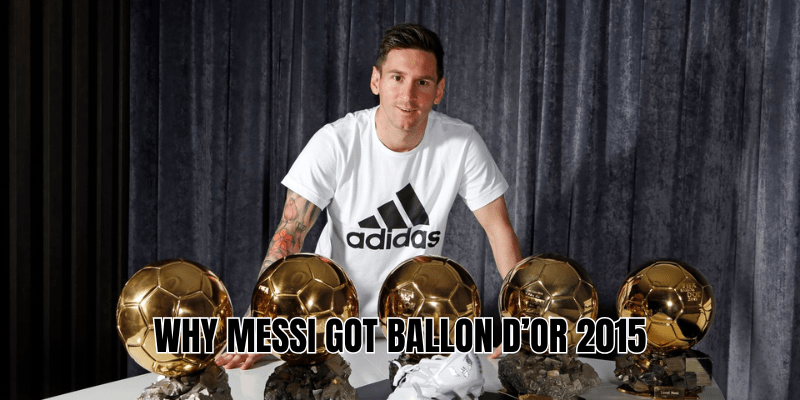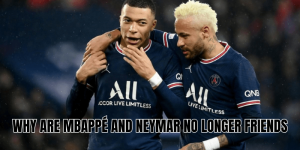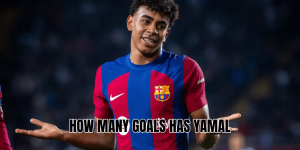2015 is often hailed as one of Lionel Messi’s greatest years. But why Messi got Ballon d’Or 2015 is more than just a highlight reel — it’s a confluence of trophies, stats, influence, and moments that defined an era. In this article, AnnuGoal will guide you through the full story — the numbers, the drama, the rivals — and make clear why the football world crowned Leo once again.
Unmistakable dominance in 2015
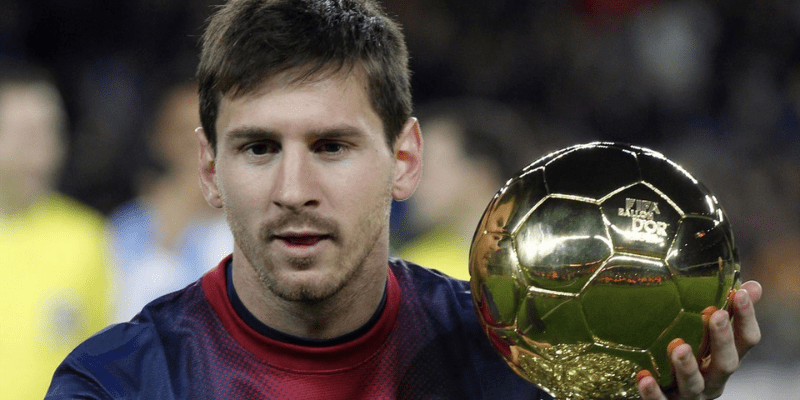
To answer why Messi got Ballon d’Or 2015, you first have to look at the trophies and statistical supremacy he delivered.
- Trophy haul: In the 2015 calendar year, Messi won the treble with Barcelona: La Liga, Copa del Rey, and the UEFA Champions League. He also added the UEFA Su.
- Goal output: Messi scored 58 goals in all competitions during the 2014–15 season, a tally few forwards in the modern game matched.
- Voting victory: He received 41.33% of votes, comfortably ahead of Cristiano Ronaldo (27.76%) and Neymar (7.86%) in the final Ballon d’Or standings.
These aren’t idle numbers — they reflect performance under pressure, across competitions, and against the best. The trophies and volume of contributions set him apart.
The rival context: Ronaldo, Neymar & the competition
A big part of any Ballon d’Or discussion is how a player stacks up against his peers.
- Cristiano Ronaldo had claimed the award in 2013 and 2014, and was widely seen as Messi’s main adversary heading into 2015. But Messi’s season outpaced him in both silverware and key moments.
- Neymar, his Barcelona teammate, was also in contention, though more for breakout brilliance than consistent dominance.
- Other challengers like Robert Lewandowski and Luis Suárez made strong cases, but none combined team success, match-changing moments, and pedigree like Messi did in 2015.
By reclaiming the award.
Key moments that sealed it
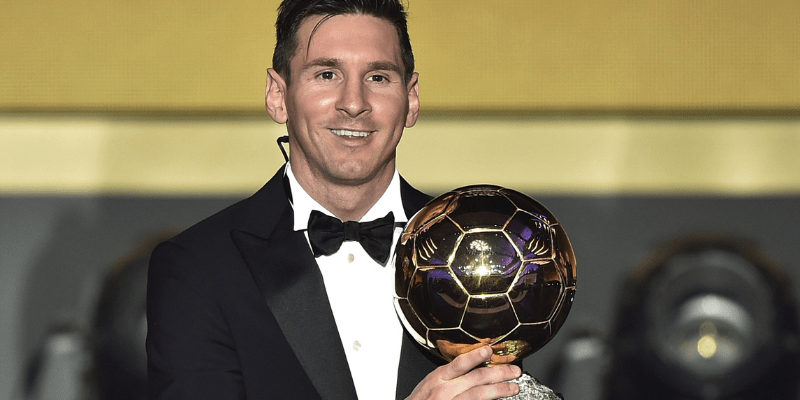
Behind the numbers and trophies, certain individual matches and sequences give your answer extra weight. These are the kind of defining scenes that linger in voters’ minds.
Champions League heroics
In the semi-final showdown against Bayern Munich, Messi delivered two sublime goals — one a lob, one an audacious dribble — that practically carried Barcelona into the final. Those were not just goals; they were symbolic statements of class.
Copa del Rey final brilliance
Facing Athletic Bilbao in the Copa del Rey final, Messi opened the scoring with a solo run, carving through defenders and setting the tone for Barcelona’s 3–1 win. His influence in finals reinforced his status as the go-to performer.
Consistent excellence across the year
Messi didn’t just show up for marquee fixtures — week in, week out, he delivered. Whether in La Liga, Copa del Rey, or the Champions League, his presence altered games. Critics noted his dribble attempts.com])
Statistical edges that swayed voters
Let’s break down some of the metrics that distinguished Messi in the 2015 season — the kind of metrics that often make or break such awards.
| Metric | Messi’s Performance | Significance |
| Goals in all competitions | 58 | Volume unmatched except by all-time greats |
| Ballon d’Or voting share | 41.33% | One of his highest percentages |
| Contribution in “big” ties | Semi-finals, finals, clutch games | Elevated influence vs. rival contenders |
| Team success across tournaments | Treble + international titles | Voters prize silverware |
| Dribbling and chance creation | High attempts and accuracy | Demonstrated not just finishing, but artistry portingintelligence.com]) |
All these metrics coalesced into a powerful narrative: Messi was indispensable to team success while still producing jaw-dropping individual brilliance.
The legacy factor: narrative, reputation, gravity
In a Ballon d’Or vote, facts tell most of the story — but context and legacy carry real weight. By 2015, Messi was already seen as one of the greatest ever. This means every new season is measured against a loftier standard.
When you ask why Messi got Ballon d’Or 2015, you can’t ignore:
- Brand of genius: Voters expect Messi to influence games; in 2015, he exceeded expectations.
- Consistency at the top: He had already won four Ballon d’Ors before. This 2015 award extended his dominance.
- Emotional narrative: He was reclaiming the title.
It’s fair to say that Messi’s aura — his myth — made his 2015 not just great, but inevitable in many eyes.
Objections & criticisms — and how Messi answered them
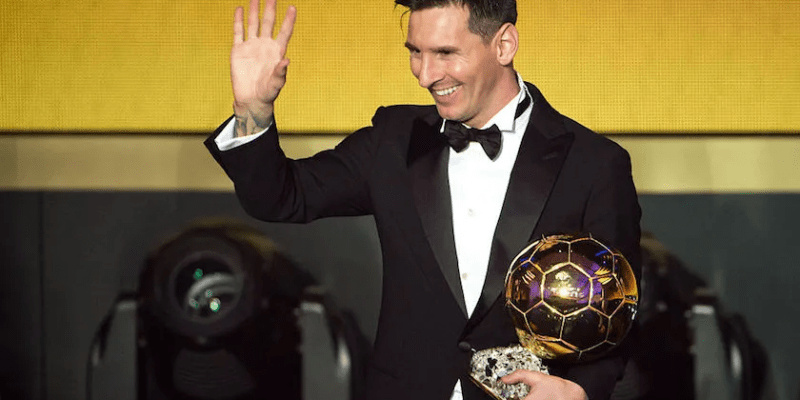
No playertory is universally embraced, and 2015 had its detractors. Some argued:
- Ronaldo’s Champions League stats were just as impressive: True, Ronaldo scored heavily. But his team success and clutch impact that year lagged behind Messi’s more balanced campaign.
- Overreliance on Barcelona’s strength: Yes, Barcelona was stacked — but Messi was the linchpin. He didn’t just ride the train; he drove it.
- Voting bias/legacy bias: Legacy always colors ballots. But Messi’s 2015 season gave empirical reasons to back bias with solid content.
In the end, Messi didn’t just answer criticisms — he raised the bar so high they became rhetorical.
Why Messi got Ballon d’Or 2015 — distilled
Putting all the pieces together, here is the concise answer:
- He won major trophies (La Liga, Champions League, Copa del Rey, plus international club trophies)
- He scored 58 goals across competitions and delivered in crucial matches
- He had better impact in finals and knockout ties than most rivals
- He accrued overwhelming support (41.33% of votes)
- His legacy and reputation already positioned him as the benchmark
In short — why Messi got Ballon d’Or 2015 is because no one in football that year matched the combination of influence, trophies, moments, and sheer artistry.
Final Thoughts
Why Messi got Ballon d’Or 2015 is not just a trivia question — it’s a showcase of how greatness blends numbers, narrative, and moments. That year, Messi didn’t just score goals — he elevated his team, gripped the biggest matches, and claimed trophies like a gladiator.
At AnnuGoal, we love diving deep into stories like this because they reveal what makes legends. If you enjoyed this breakdown, explore our other articles: from Messi’s Ballon d’Or run in 2019, to Ronaldo’s 2022 bid, to all-time ranking lists. And don’t hesitate — share this with a friend who argues that 2015 was Messi’s best year.
Want even more stats or a side-by-side with Ronaldo’s 2015? Just say the word.
